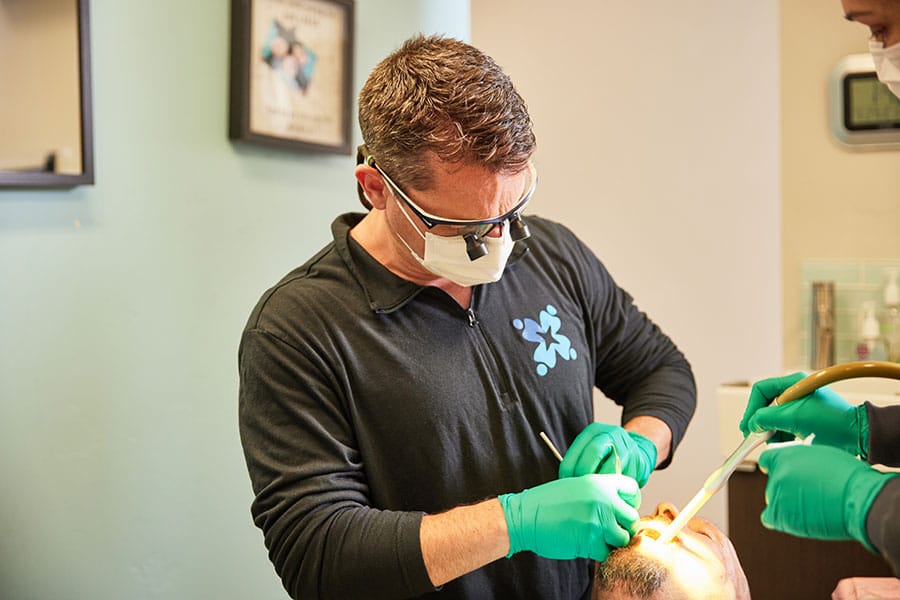What are wisdom teeth?
Wisdom teeth are the final set of molars. Did you know that not everyone has wisdom teeth? Some people have none and some people only have a couple of them.

Wisdom teeth are the final set of molars. Did you know that not everyone has wisdom teeth? Some people have none and some people only have a couple of them.
Wisdom teeth tend to cause trouble in the mouth. They may cause crowding of other teeth, may be growing in at an odd angle, and may become painful as they erupt. We will take x-rays to evaluate your wisdom teeth (Dentists love to look at wisdom teeth x-rays because just when we think we’ve see it all someone shows up with the craziest wisdom teeth we’ve ever seen). Dr. Crump does most wisdom teeth removal in our office, but he occasionally refers more complicated cases to an oral surgeon.